iPad Pro 12.9 2021 vs 2020: which Apple tablet is best for you?
One high-end tablet against a slightly older high-end tablet
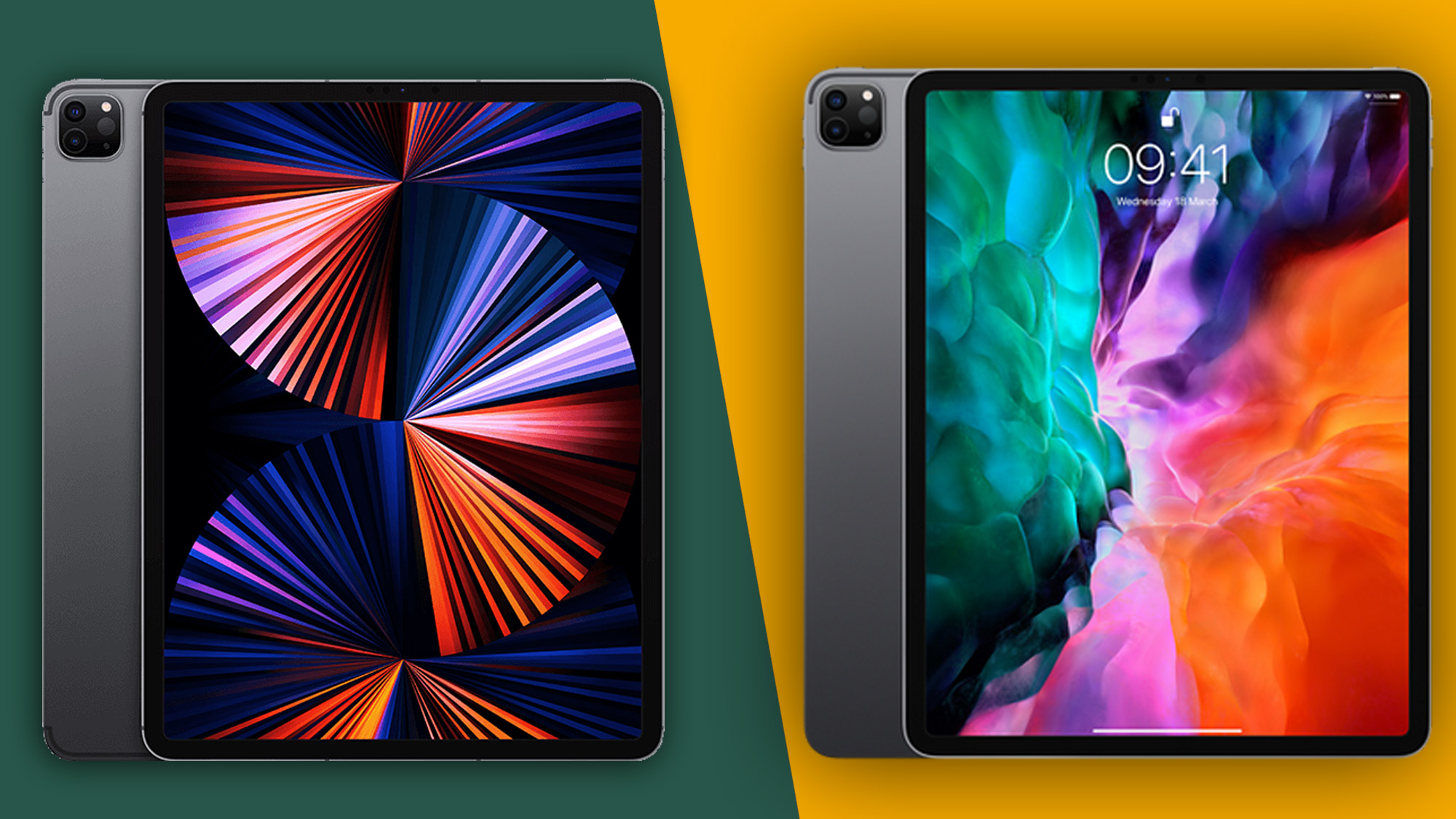
Once the best tablet out there, the iPad Pro 12.9 (2020) has fallen behind ever so slightly thanks to the existence of its younger sibling, the iPad Pro 12.9 (2021), but does that mean you should overlook it?
That's a tricky question, with much of it coming down to how cheaply you can find the iPad Pro 12.9 (2020) and how important it is for you to have the latest technology.
Having said that, both of these tablets are still highly remarkable portable devices, and more than competent for the vast majority of what you might need to do while on the move (or at home).
If you're struggling to decide which iPad Pro 12.9 is for you, we're here to help out. We've looked at all the features and specs of both tablets, while also paying attention to any design changes and anything else you might need to know before you consider buying one.
iPad Pro 12.9 vs iPad Pro 12.9 price and availability
The Wi-Fi-only iPad Pro 12.9 (2021) starts at $1,099 / £999 / AU$1,649 for 128GB of storage. The price rises to $1,199 / £1,099 / AU$1,799 for 256GB of storage, with up to 2TB available for a rather pricey $2,199 / £1,999 / AU$3,299.
Alternatively, if you want to go the cellular 5G route, expect to pay a bit more for the benefits of not having to rely solely on Wi-Fi when you're out and about. Stock is easily available, both via Apple directly, and at many different online and bricks-and-mortar retailers.
Buying the iPad Pro 12.9 (2020) is a trickier proposition. That's because Apple no longer sells it, sticking with the newer model instead.
Get daily insight, inspiration and deals in your inbox
Sign up for breaking news, reviews, opinion, top tech deals, and more.
However, that does mean you can find it at a considerable discount at various third-party retailers, providing you don't mind shopping around or potentially buying a refurbished model. The iPad Pro 12.9 (2020) is only available with between 128GB of storage and 1TB, with Wi-Fi or cellular LTE an option.
The price officially starts at $999 / £969 / AU$1,649, rising to $1499 / £1,469 / AU$2,499 for 1TB, and more if you want cellular connectivity, but again, in practice it's often a lot cheaper.

Design
The iPad Pro 12.9 (2021) and iPad Pro 12.9 (2020) are near identical in terms of dimensions. They both offer the same height of 280.6mm and width of 214.9mm, with the only discernible difference being that the iPad Pro 12.9 (2021) is slightly deeper at 6.4mm compared to the iPad Pro 12.9 (2020)'s 5.9mm. In regular use, you'll never notice the difference.
Weight wise, the iPad Pro 12.9 (2021) is slightly heavier at 682g for the Wi-Fi model compared to the iPad Pro 12.9 (2020)'s 641g, with 2g in it between the cellular models but again, this is far from a deal-breaker for anyone.
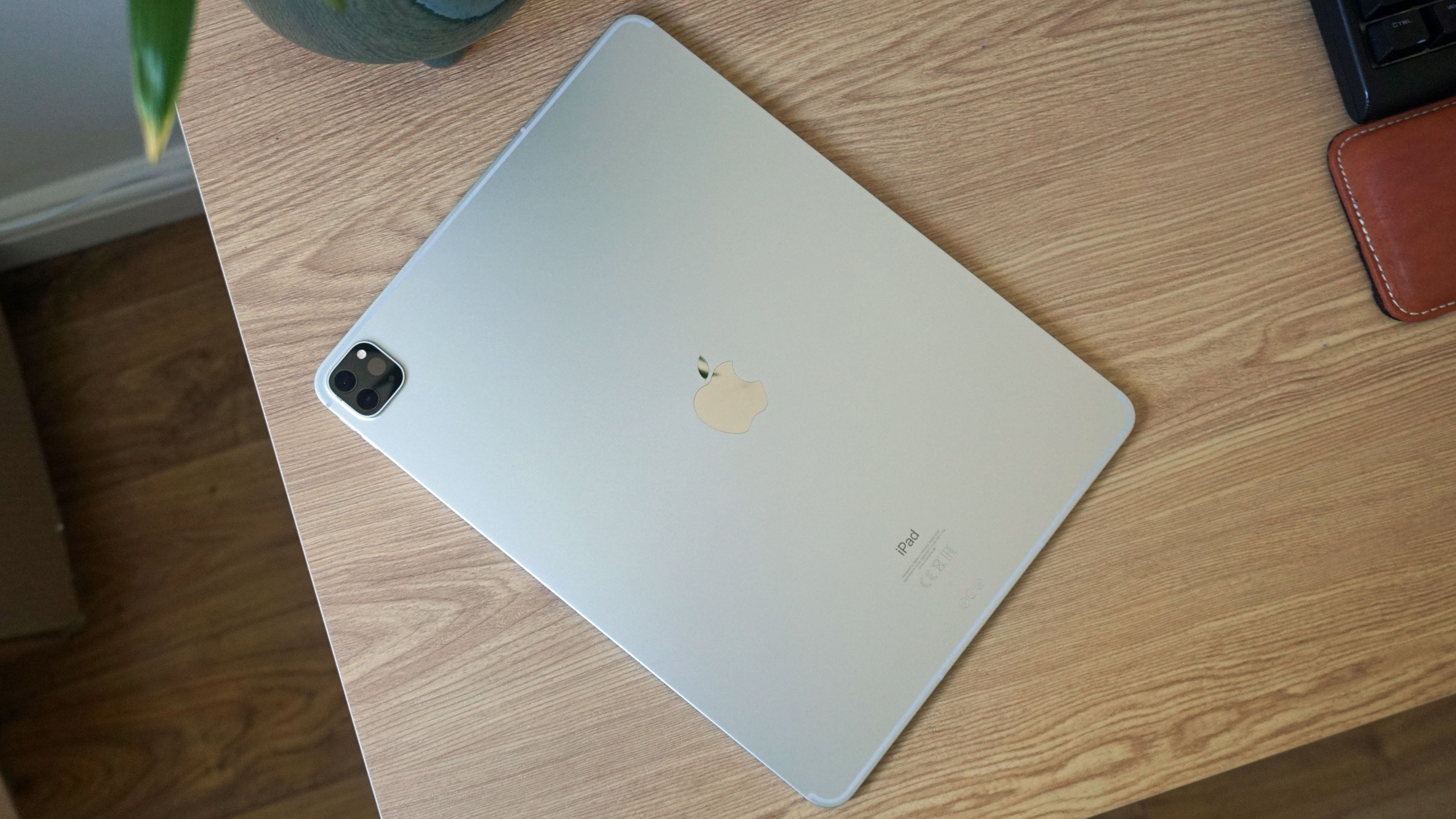
Apple has played it safe with both tablets so expect an aluminum rear and frame for both models too, and both have glass fronts that are crying out for a case to protect it.
Other design choices are predictably similar with both tablets offering quad speakers and all the relevant ports at the bottom of the devices.
Silver and Space Grey are your only options if you're keen on expressing yourself with a different color palette.
Display
On the screen front, more things have changed in the space of a year, but perhaps still not quite as much as you might hope.
Both tablets sport 12.9-inch displays with True Tone (which adjusts the color temperature based on your surroundings), but the iPad Pro 12.9 (2021) has a Mini LED display, which improves the brightness and image quality over the 2020 model's LCD display.
The new model has a peak brightness of 1,600 nits compared to just 600 on the iPad Pro 2020, but honestly, that's likely something that few users will ever actually need.
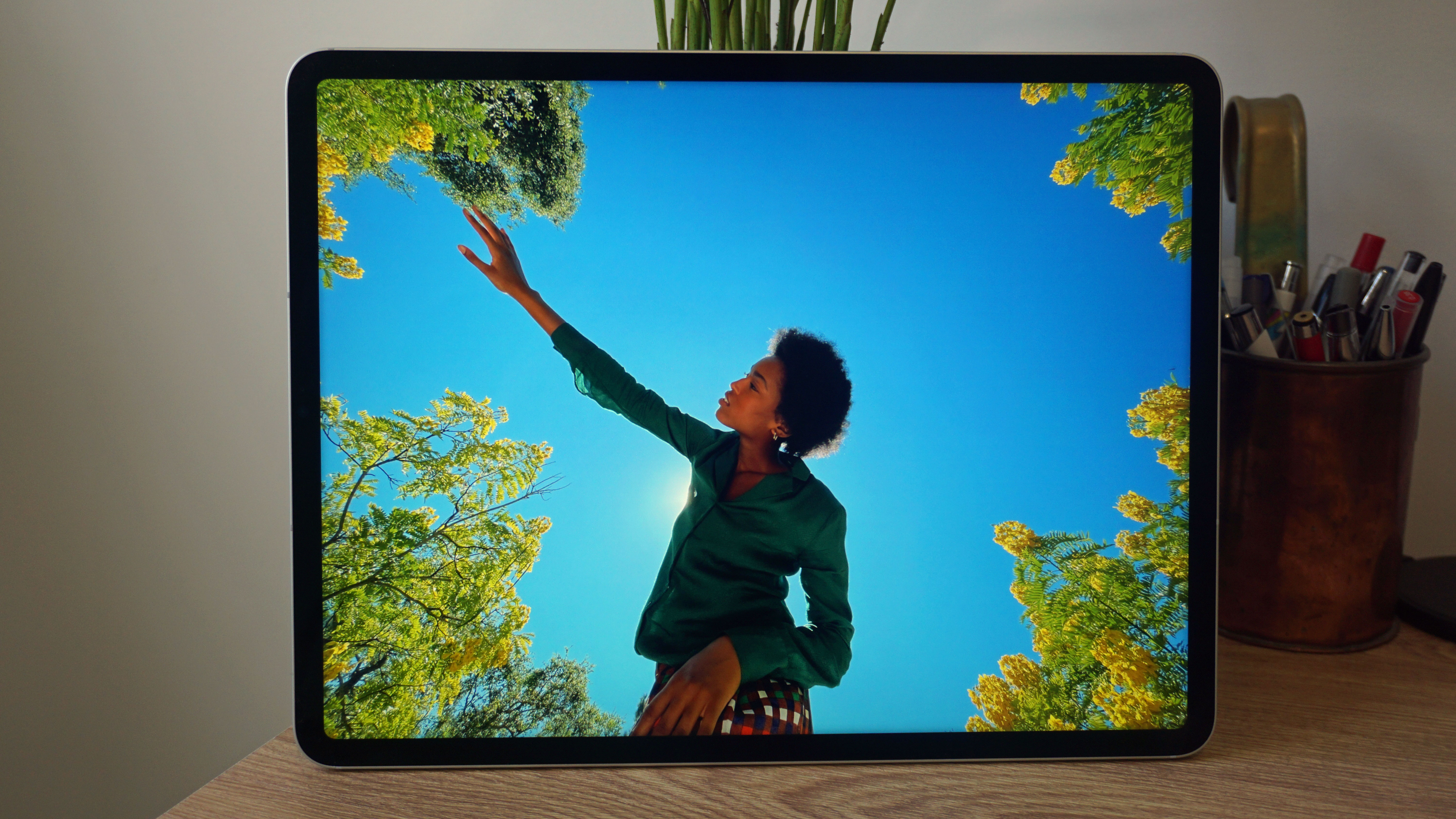
Elsewhere, both tablets offer resolutions of 2048 x 2732 for around 265 pixels per inch.
One consistently useful feature is that both the iPad Pro 12.9 (2021) and iPad Pro 12.9 (2020) have 120Hz refresh rates, which are great for browsing online smoothly or gaming at speed. It's something you'll soon wonder how you lived without, especially combined with the sleek smoothness of iPadOS as standard.
Camera and battery
Camera-wise, you're probably not buying a tablet for its photo taking abilities. Luckily, both the iPad Pro 12.9 (2021) and iPad Pro 12.9 (2020) are reasonably competent for those rare times you do need to take some snaps.
They both offer 12MP wide and 10MP ultra-wide cameras with an ƒ/1.8 aperture for the wide and an ƒ/2.4 aperture for the ultra-wide lens.
So, what's the difference? Not much. The iPad Pro 12.9 (2021) has Smart HDR 3 compared to the iPad Pro 12.9 (2020)'s Smart HDR software (which uses HDR coupled with machine learning to capture better photos), but we're talking very incremental changes here.
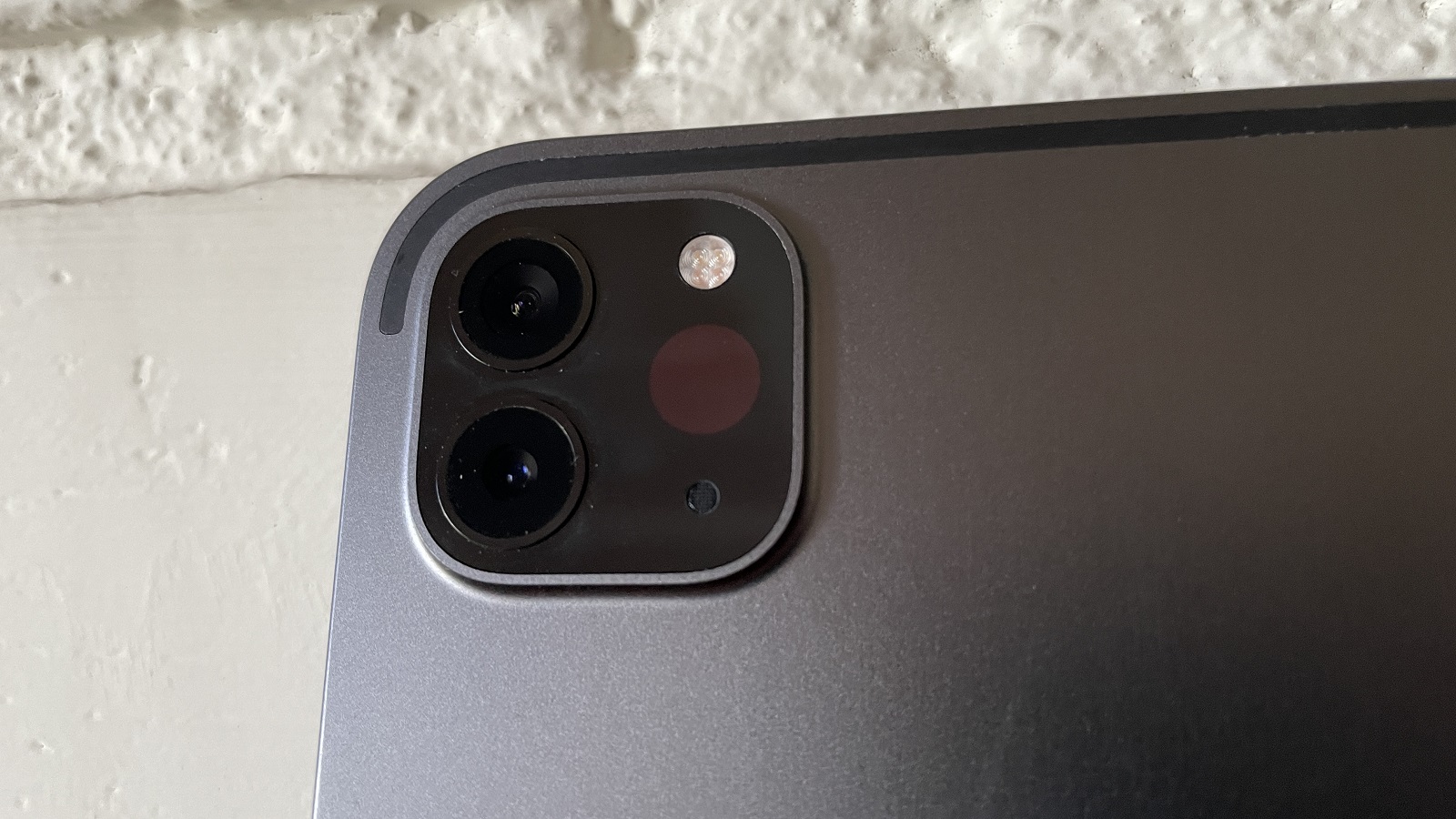
Both tablets can record 4K video at 24 to 60fps, with the iPad Pro 12.9 (2021) having the edge with extended dynamic range for video up to 30fps.
The iPad Pro 12.9 (2021) also benefits from a 12MP ultra-wide front camera and the rather neat Center Stage feature, which allows the camera to 'follow' you around a room when taking video calls. The 2020 model lacks this, and has a more conventional 7MP selfie snapper.
Battery life is more or less identical for these tablets too with up to 10 hours of browsing or watching video, or up to 9 hours when using cellular. They also both support 18W charging.
Specs and features
Up until this point, the iPad Pro 12.9 (2021) and iPad Pro 12.9 (2020) appear to be remarkably similar, which might make you wonder why it's worth paying more for the latest model. The biggest distinction is when it comes to the two tablets' core specs, and that's also where the iPad Pro 12.9 (2021) ends up light years ahead of all competition.
That's because it uses the Apple M1 chipset that we've seen in Apple laptops and desktop systems. It's fantastic. While a typical iPad user might not notice it during everyday tasks, it turns the iPad Pro 12.9 (2021) into a powerhouse of a system for those looking to make music, edit video, or perform other power-intensive tasks.
If you only plan on browsing and streaming content, it's unnecessary, but for those with bigger plans, it simply soars.
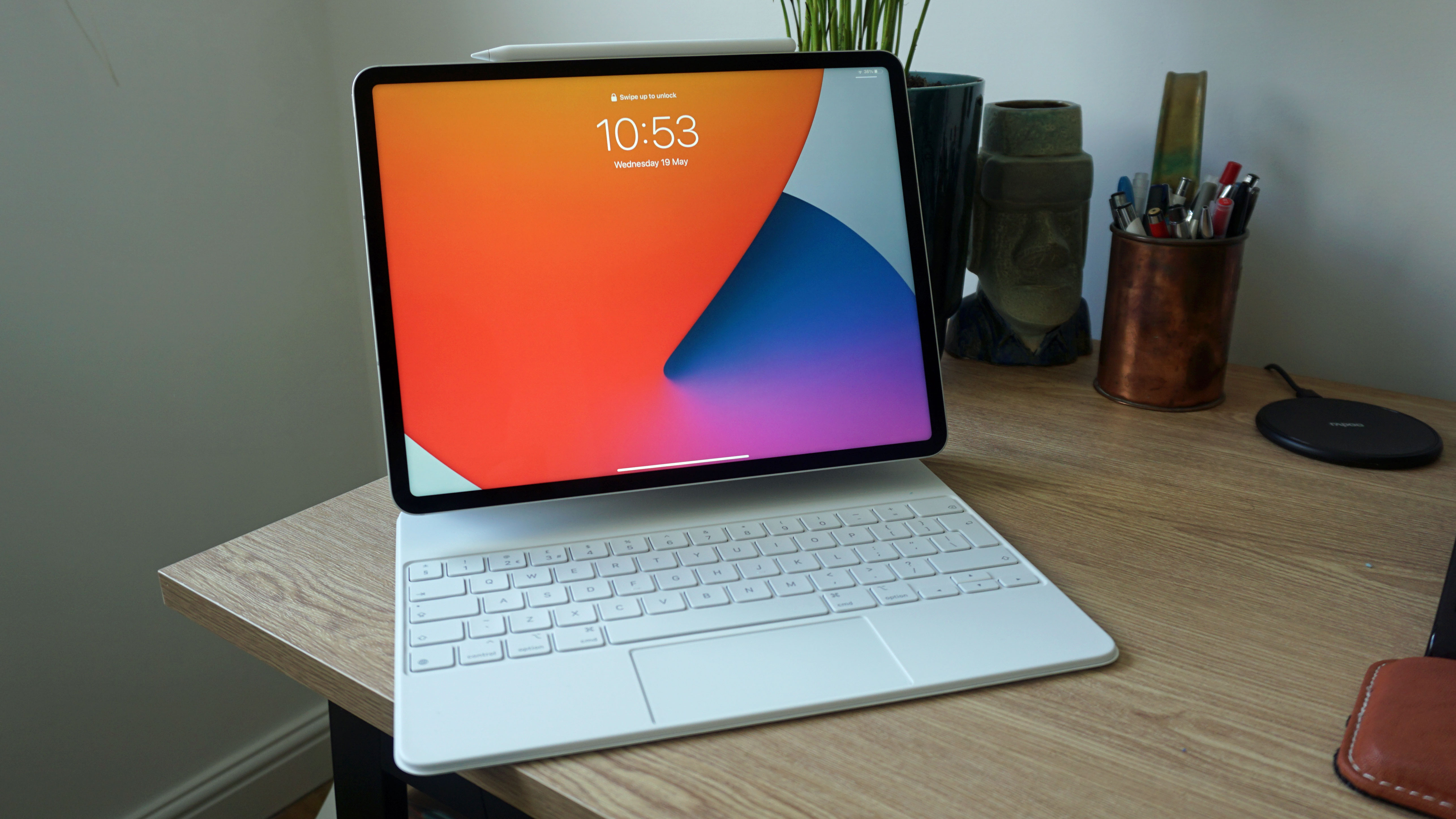
That's not to say that the iPad Pro 12.9 (2020)'s A12Z Bionic chipset is a slouch. It's fantastic when compared to pretty much all other competition including the best Android tablet - the Samsung Galaxy Tab S7 Plus - even if it can't compare with the iPad Pro 12.9 (2021).
You also get more RAM with the newer model, at either 8GB or 16GB, while the iPad Pro 12.9 (2020) comes with just 6GB.
Elsewhere, it's worth noting that if you need 5G connectivity, you'll need the iPad Pro 12.9 (2021), as the older model only supports 4G. Also, if storage needs are crucial, neither tablet offers microSD support, so you'll need to plan ahead.
It's possible to buy the iPad Pro 12.9 (2021) with from 128GB to a whopping 2TB of storage depending on your budget, while the iPad Pro 12.9 (2020) only goes up to 1TB. That's still mighty impressive, but if you need that extra storage, you need the iPad Pro 12.9 (2021).
Both offer USB-C connectors, with the iPad Pro 12.9-inch (2021) offering support for Thunderbolt/USB 4. There's no issue with accessory compatibility either, with both tablets compatible with the Apple Pencil (2nd generation), Magic Keyboard and Smart Keyboard Folio.
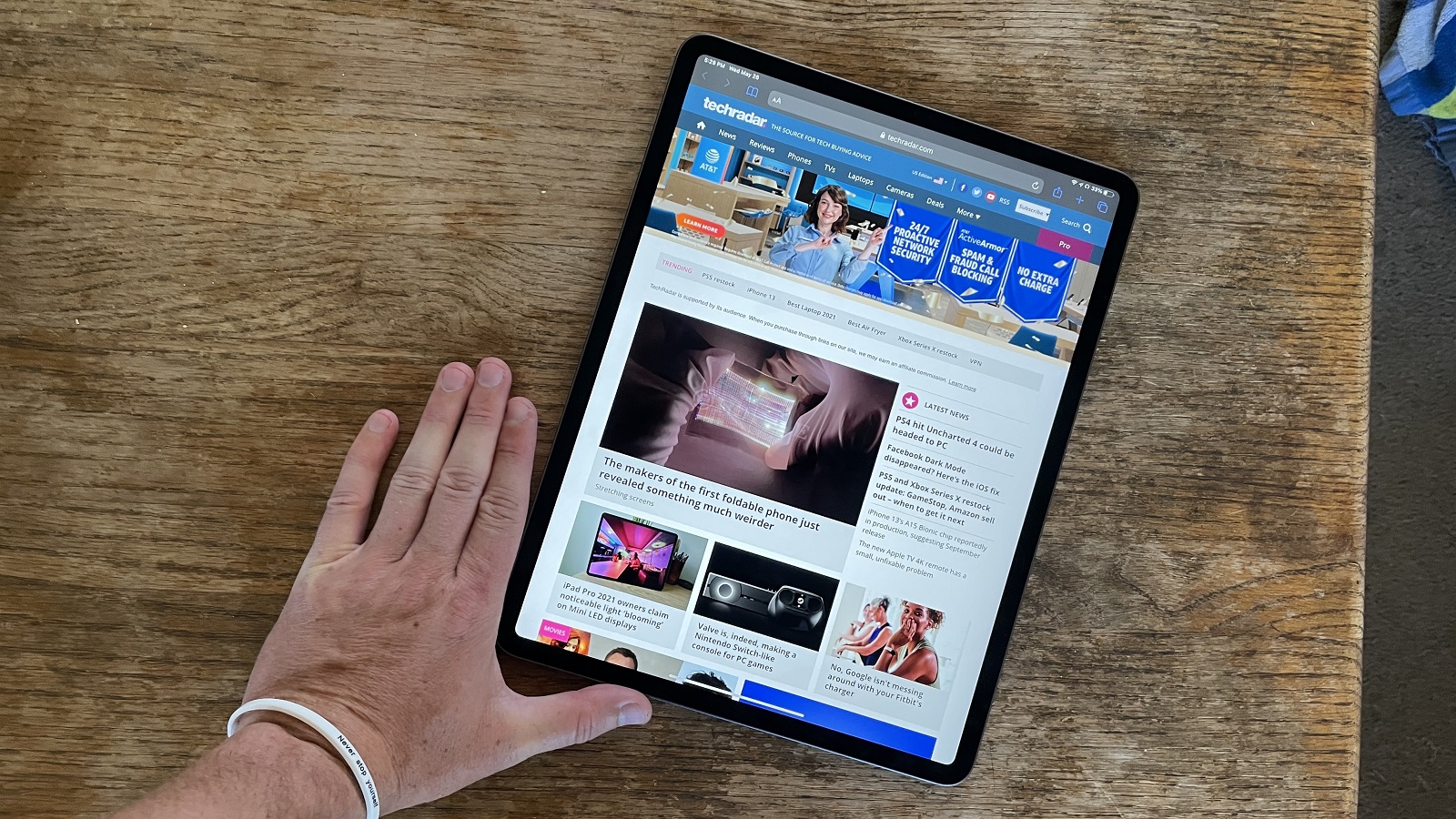
Takeaway
For many users, there's not much difference between the iPad Pro 12.9 (2021) and the iPad Pro 12.9 (2020). Both tablets offer near identical designs, screens, cameras, and other features.
However, where things get much more different is when it comes to the speed of the devices. The iPad Pro 12.9 (2020) is more than good enough for many users, but if you want the fastest device out there then you'll need the iPad Pro 12.9 (2021). It can act as a laptop thanks to having as much power as a MacBook, and it can do basically everything you could want from video editing to music creation.
If you simply need a regular tablet though, the iPad Pro 12.9 (2021) is total overkill and the iPad Pro 12.9 (2020) may be a more tempting middle ground thanks to great discounts available due to it being an older device.
For standard web browsing, streaming, and regular tablet use, the iPad Pro 12.9 (2020) will more than suit, but depending on your budget, you may be better off going a little lower and opting for an iPad Air 4 (2020) instead.
As is often the way with technology, it all comes down to how much speed and having the latest gadget matters to you.
- There are loads of other options - check out the best iPads

Jennifer is a roving tech freelancer with over 10 years experience. Having graduated from Swansea University with a degree in Media and Communication Studies, and later with a diploma from Staffordshire University with a post graduate diploma in Computer Games Design, she's written for a huge number of publications, including T3, FitandWell, Top Ten Reviews, Eurogamer, NME and many more.
Her main areas of interest are all things B2B, smart technology, wearables, speakers, headphones, and anything gaming related, and you'll find her writing everything from product reviews to buying guides and hunting down the latest coupon codes to save you money. In her spare time, she enjoys the cinema, walking, and attempting to train her pet guinea pigs. She is yet to succeed.